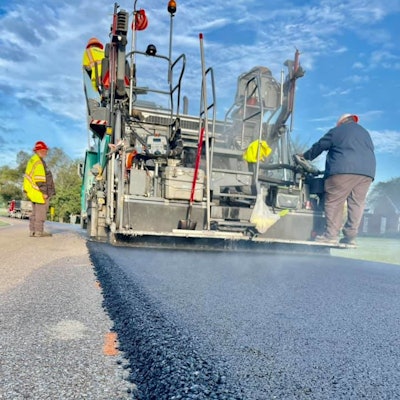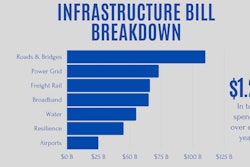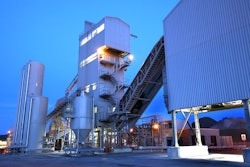
President Biden's lofty economic agenda has been stalled in Washington as Democrats continue to debate the scope and price tag of his Build Back Better package the party plans to pass through reconciliation. Unfortunately, the Senate-passed $1.2 trillion Infrastructure Investment & Jobs Act (IIJA) has been linked to this social spending package for the past few months, delaying this important funding from reaching our crumbling infrastructure.
President Biden is expected to attend a morning meeting with all House Democrats shortly before his trip to Europe in a last-minute push to get progressives to vote for a stalled bipartisan infrastructure bill, as highway funding is set to again expire over the weekend.
As we await news from Washington, Sam Sleiman, executive vice president of National Transportation for Suffolk shared his thoughts on the passage of this bill, and the repercussions if we don't do something to address our failing roads and bridges.
For Construction Pros: As we know, the $1.2 trillion infrastructure billed called the Infrastructure Investment & Jobs Act has been bouncing around Washington for the last few months. Congress has yet to make any final decisions on this historical legislation, but what would the passage of this bill mean for the construction industry?
Sam Sleiman: The importance of the Infrastructure Bill cannot be overstated. This will be the largest investment in American infrastructure in a generation. Successfully passing this funding package will not only enhance our infrastructure, which has been woefully underfunded, but it will also create countless jobs and a better quality of life for Americans. It will also help maintain our economic competitiveness globally. For the construction industry, which has faced many challenges throughout the past 20 months due to the pandemic, this Infrastructure Bill could be a game changer. The millions of dollars invested over the next decade in bridges, highways, rail and airports will provide more predictability for the construction industry and will create long-term jobs that will help boost our economy.
FCP: What areas would benefit the most from the potential influx of funding? How will larger transformative projects move our economy forward?
SS: For generations, we have neglected making substantial investments in our infrastructure, including highways, bridges, tunnels, broadband and other areas. Transportation and airports are a perfect example. Airports typically receive approximately $3.2 to $3.5 billion a year in AIP funds. This short-term funding has essentially acted as a band-aid that has hurt our competitiveness and made it more difficult to meet the demands of the global economy. The Infrastructure Bill would essentially double the grants and funding for airports on a yearly basis.
As it currently stands, the bill is poised to provide $25 billion in federal funding as a supplement to regular Airport Improvement Program funding. This funding will be split between airport infrastructure grants and terminal programs, FAA facilities and services, and smaller aviation airports. All these areas of funding will provide improvements to the user experience and the infrastructure of airports, including the improvements to terminals and their connectivity, upgrades to control towers and increases in sustainable infrastructure. There is no doubt the Infrastructure Bill will have a transformative impact on airport projects and our economy.
FCP: With bridges and roads crumbling at alarming rates, what type of impact would not passing this legislation have? How would our economy in general suffer?
SS: Failing to pass this important legislation is simply not an option. It is clear American infrastructure is struggling to keep up with economic demands, so the timing couldn’t be better for this infusion of funding for the economy. By investing in our infrastructure, we are strengthening the network our commerce and economy rely on to thrive and remain competitive on the world stage.
Suffolk is a national, privately owned real estate and construction enterprise that invests, innovates and builds. Sleiman is in charge of operations and business development opportunities in the transportation/aviation sector, which includes aviation, ports and railway projects throughout the United States. Throughout his career, his greatest passion has been envisioning and developing innovative transportation facilities that are safe, secure and customer-friendly but that also help transform the transportation sector and prepare it for the future.
Prior to joining Suffolk, Sleiman spent almost 30 years with the Massachusetts Port Authority, most recently serving as Director of Capital Programs and Environmental Affairs. While at MassPort, he oversaw the Logan International Airport modernization project as well as the construction of three airports, Boston’s seaport, and numerous other transportation facilities. Sleiman also has served as chairman for both the National Board for Construction Management Association of America (CMAA) and Airport Council International’s (ACI) Operation and Technical Committee. His experience has allowed the Suffolk team to elevate their level of client service, innovation and execution on transportation projects throughout the country.




















